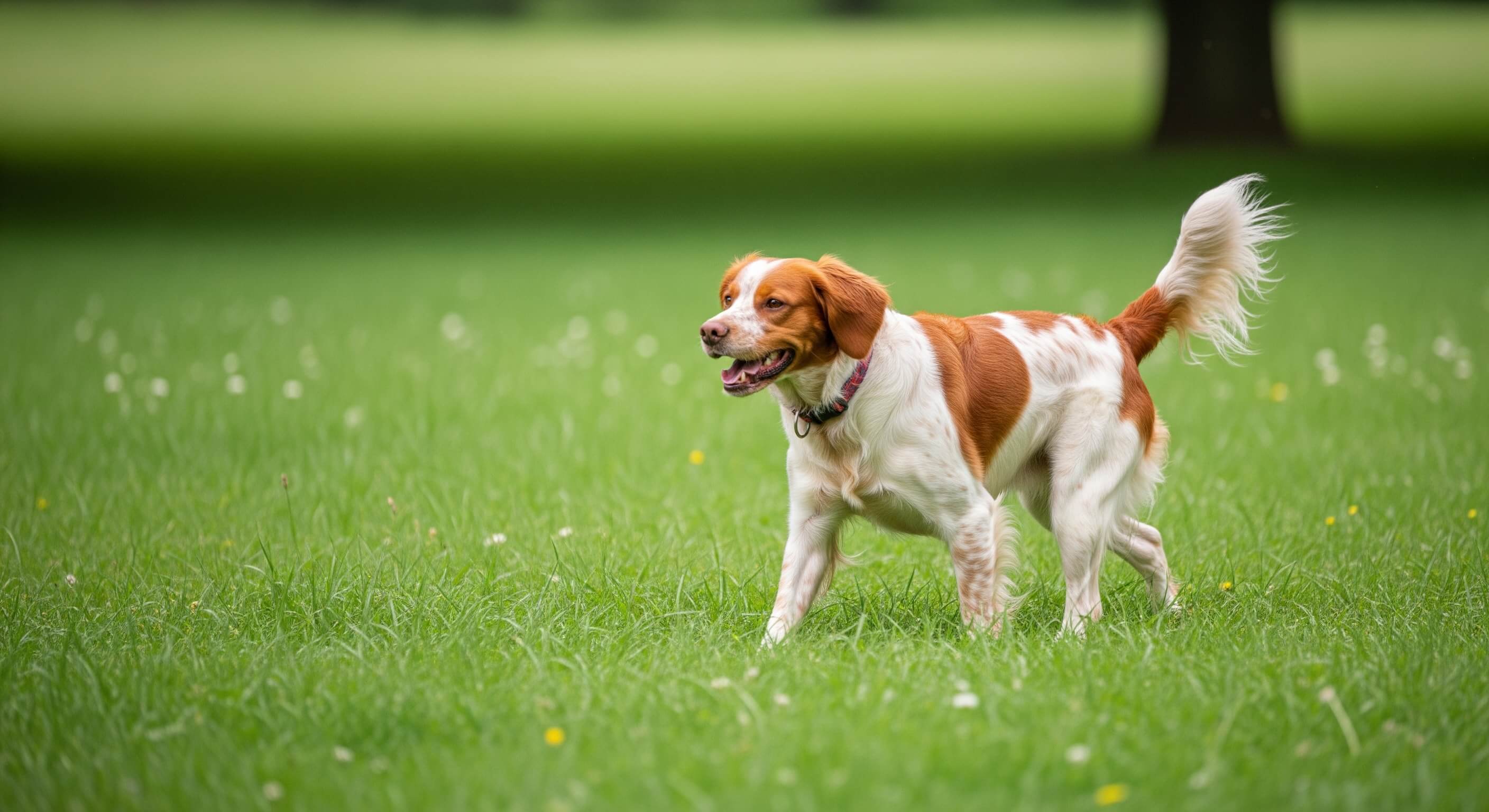With their boundless energy, affectionate nature, and undeniable charm, the Brittany is a true delight for dog lovers. If you're considering welcoming this enthusiastic sporting breed into your life, here's everything you need to know—from their personality traits to diet requirements, exercise needs, and more.
Breed Overview
- Group: Sporting
- Height: 17.5–20.5 inches
- Weight: 30–40 pounds
- Lifespan: 12–14 years
- Shedding Level: Moderate
- Barking Tendency: Low to moderate
Temperament and Personality Traits
The Brittany is known for being highly affectionate, intelligent, and eager to please. They're a perfect blend of fun-loving and focused, making them excellent companions for both families and active individuals. Their temperament is generally even-keeled, though they thrive with structure and routine.
I once worked with a Brittany named Daisy who would rather play fetch for hours than nap—her drive and sweetness melted everyone’s heart at the training center.
Training Difficulty and Socialization Needs
Training a Brittany is typically smooth, thanks to their eagerness to learn. However, their energy and enthusiasm can make early training a bit of a whirlwind. Positive reinforcement and consistent routines are key.
- Training Difficulty: Moderate—requires patience and consistency
- Socialization Needs: High—they thrive when exposed early to people, pets, and environments
Exercise Requirements
If you’re not ready for an active lifestyle, the Brittany may not be for you. These dogs need at least 60–90 minutes of daily exercise to prevent boredom and unwanted behaviors.
- Daily walks, fetch, or off-leash play in secure areas
- Excellent candidates for agility or nose work
- Without exercise, they may develop destructive habits
Grooming Needs
The Brittany’s coat is relatively low-maintenance but does require regular care. Their grooming needs are modest, but they do shed moderately, especially during seasonal changes.
- Brush 2–3 times a week to control shedding level
- Trim nails monthly and clean ears weekly
- Bathe as needed—typically every 4–6 weeks
Diet Requirements
These athletic dogs burn a lot of energy, so quality nutrition is essential. Look for high-protein kibble and supplement with fresh, vet-approved options.
- Protein: 22–28%
- Fat: 12–18%
- Portion control is key—Brittanys can be food-motivated
Common Health Issues and Lifespan
Generally healthy, Brittanys still have a few genetic concerns to watch out for:
- Hip dysplasia
- Epilepsy
- Hypothyroidism
- Eye disorders (e.g., cataracts)
Routine vet visits and early health screenings can help them enjoy their full lifespan of 12–14 years.
Living Considerations: Apartment Living and Family Compatibility
While their size might suggest apartment compatibility, Brittanys do best with space to run and play. If you're in an apartment, daily structured activity is non-negotiable.
- Apartment Living: Possible with high exercise commitment
- Family-Friendly: Absolutely! They're good with children and love being part of family adventures
- Other Pets: Usually get along well if socialized early
Final Thoughts
The Brittany is a charming, high-energy companion that thrives in an active household. With the right mix of training, socialization, and physical stimulation, this breed will reward you with loyalty, fun, and unconditional love.
If you’re looking for a dog who’s as enthusiastic about life as you are, the Brittany may be your perfect match.
Always work with a reputable breeder or rescue, and don’t forget—every dog deserves a loving, informed home!
Frequently Asked Questions (FAQs)
1. What is the Brittany's temperament like?
2. Are Brittany dogs good for apartment living?
3. How difficult is it to train a Brittany?
4. What are common health issues in Brittanys?
5. How much exercise does a Brittany need?
6. Do Brittanys shed a lot?

About SniffnTail
SniffnTail is your go-to destination for everything pets. From helpful advice, tips, and insights to thoughtfully selected products and resources, we’re here to support pet owners at every stage of their journey. Whether you're caring for a playful pup, a wise old cat, or anything in between, SniffnTail offers tools and knowledge to make pet parenting easier and more joyful.
Related Articles
 Dog Breeds • 7 min read
Dog Breeds • 7 min readAustralian Shepherd Guide: Temperament, Training, and Care for Active Families
Discover the Australian Shepherd's temperament, personality traits, grooming needs, training tips, and more. A must-read guide for active pet parents.
 Dog Breeds • 7 min read
Dog Breeds • 7 min readPembroke Welsh Corgi: The Loyal, Lively Herding Companion
Discover the lovable Pembroke Welsh Corgi: from their herding instincts to grooming tips, exercise needs, training strategies, and how to prevent corgi back problems. A must-read for dog lovers!
 Dog Breeds • 5 mins Read
Dog Breeds • 5 mins ReadDoberman Pinscher Care & Behavior Guide
The Doberman Pinscher is a sleek, powerful, and intelligent working breed originally developed in Germany. Renowned for loyalty, protectiveness, and trainability, Dobermans are often used in security, police, and military roles, but also make loyal and affectionate family companions.

